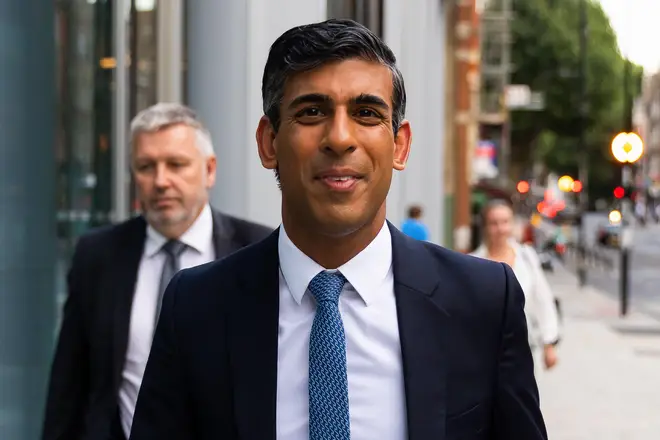
Nick Ferrari 7am - 10am
3 August 2022, 10:14

Rishi Sunak wants to change the definition of extremism to allow people with an ‘extreme hatred of Britain’ to be referred for deradicalisation.
Under the plans from Tory leadership hopeful Mr Sunak, people who ‘vilify’ Britain would be treated as extremists and referred to the Government’s Prevent programme.
He said he wants to broaden the definition of extremism to include people with an “extreme hatred” of the nation.
But his camp insists the change in definition would not include criticism of the Government or any government policy, and that it would not be legally binding.
Read more: Liz Truss widens Tory lead over Rishi Sunak despite U-turn over civil service pay cuts
Mr Sunak said: “There is no more important duty for a prime minister than keeping our country and our people safe. Whether redoubling our efforts to tackle Islamist extremism or rooting out those who are vocal in their hatred of our country, I will do whatever it takes to fulfil that duty.
“Britain is a beacon of freedom, tolerance and diversity. We must never let those who seek to undermine and destroy our way of life to succeed.”
Extremism is currently defined in the 2011 Prevent strategy as “vocal or active opposition to fundamental British values, including democracy, the rule of law, individual liberty and mutual respect and tolerance of different faiths and beliefs.”
It also covers “calls for the death of members of our armed forces, whether in this country or overseas.”
People deemed to have ‘vilified’ the UK would have to do so either in writings or in public speech in order to be referred to the Prevent programme.
Critics have responded describing the announcement as “a new low” and “very dangerous.”
Academic Professor Tanja Bueltmann wrote online: “Rishi Sunak wants to expand Prevent so those ‘who vilify Britain’ can be referred to it. It’s pandering to a new low, but v dangerous nonetheless. Read it together with other plans on human rights and existing law on stripping citizenship and we get to a very dark place quickly.”
Another person wrote: “Rishi Sunak poposes to put every historian I know into the Prevent programme for the crime of hurting Britain's feelings by talking about Britain's history”
Former counter-terrorism chief Sir Peter Fahy, who was also chief constable of Greater Manchester police, questioned the precise meaning of “vilification”.
He said: “The widening of Prevent could damage its credibility and reputation. It makes it more about people’s thoughts and opinions.
“It is straying into thought crimes and political opinions.”
The plan’s outline states Mr Sunak wants to “refocus the failing Prevent programme onto the UK’s most significant terror threat - Islamist extremism and widen the Government’s definition of extremism to encompass those who vilify our country.”